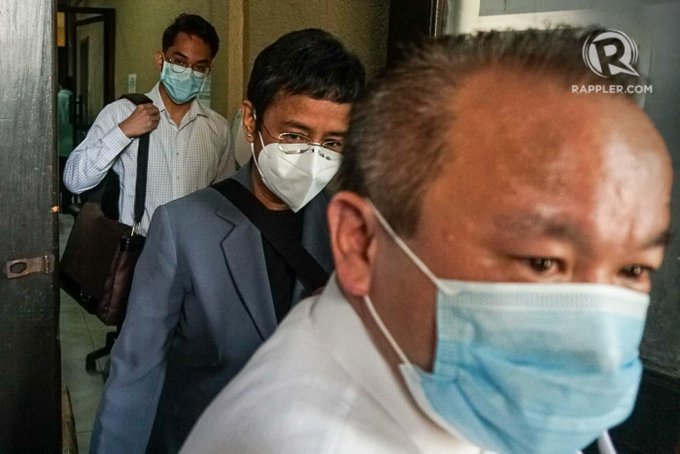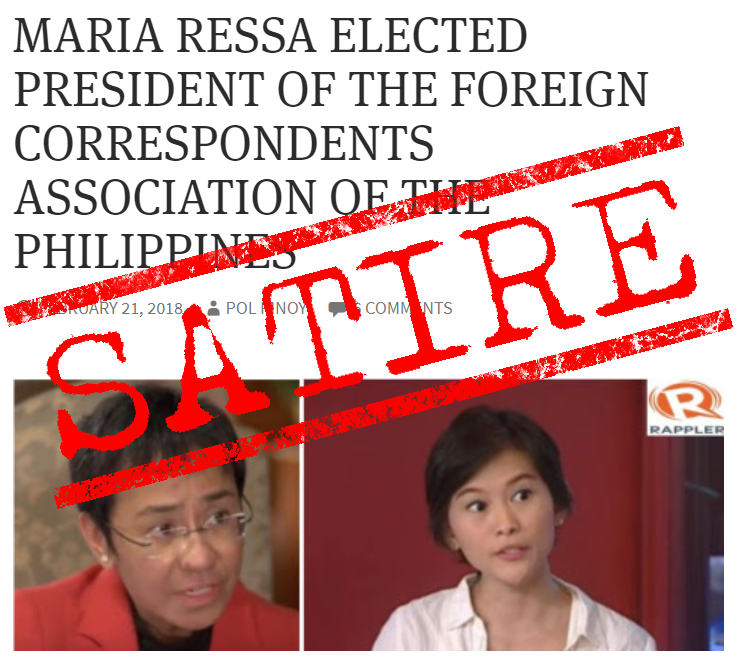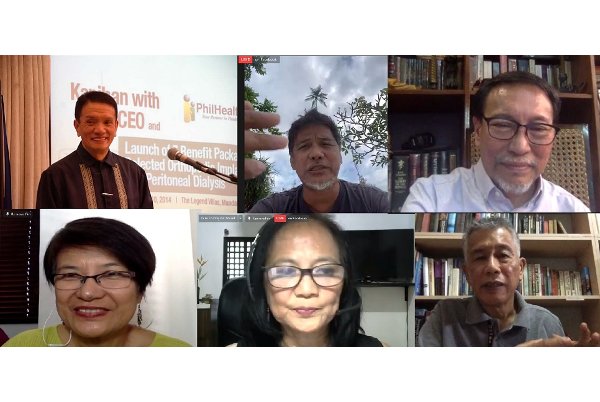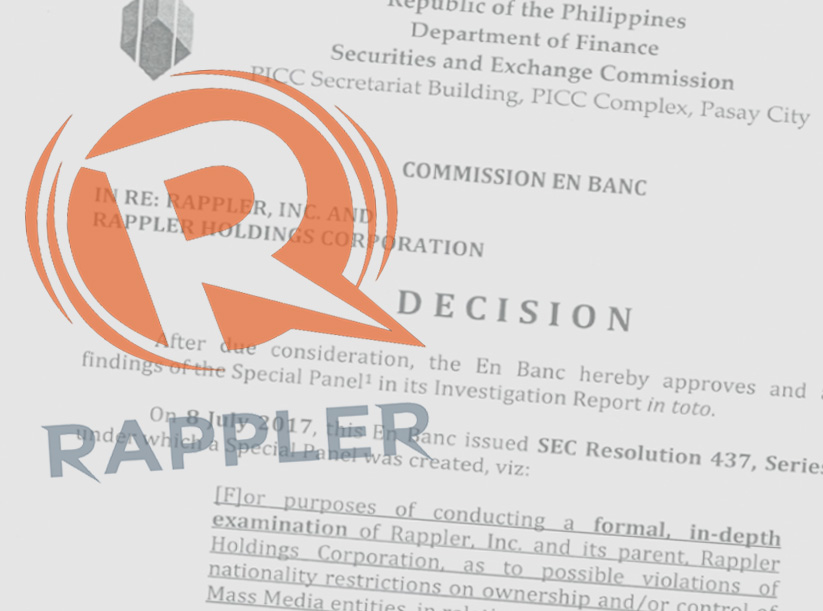Rappler president Maria Ressa has posted a P100,000 bail in relation to an online libel case the Department of Justice (DOJ) has filed against her and former Rappler researcher Reynaldo Santos, Jr. Santos, Jr. is no longer connected with the social media news network.
The National Bureau of Investigation (NBI) arrested Ressa on Feb. 13. for a charge stemmed from a complaint filed by businessman Wilfredo Keng in 2017, five years after a story linking him to former chief justice Renato Corona was published.
“Our story said former chief justice Renato Corona used a vehicle registered under the name of Mr. Keng, who, based on intelligence reports and previously published stories, had alleged links to illegal drugs and human trafficking. We called Mr. Keng and got his side before the story was published,” Rappler said in a statement.
The NBI had already dismissed the complaint for lack of basis in Feb. 22, 2018, saying the 2012 story was published months before the Cybercrime Law was signed. Laws cannot be applied retroactively.
Eight days later, NBI reversed itself and found merit in the complaint, after Keng submitted a supplemental affidavit. The bureau noted that because Rappler updated the “libelous” story in 2014 and it is still visible on their website, this can be considered a “continuous crime.” NBI submitted its findings to DOJ in March 2018.
This charge against Rappler is the latest in a string of legal battles the company has been facing since 2017.
Ressa in December also posted bail in relation to tax evasion charges against her and her company, Rappler Holdings Inc. In January 2018, the Securities and Exchange Commission (SEC) revoked the media organization’s registration, saying it engaged in a “deceptive scheme” to skirt foreign equity restrictions in mass media. (See: VERA FILES FACT SHEET: SEC revocation of Rappler’s registration explained)
Another complaint — a violation of the Anti-Dummy Law in connection with Rappler’s SEC case — is pending in the justice department.
The cyber libel charge against the social media news network has been denounced by media watchdogs as part of the present administration’s attacks against members of Philippine media.
“The arrest of Rappler CEO Maria Ressa on the clearly manipulated charge of cyber libel is a shameless act of persecution by a bully government. It is clear that the Department of Justice perverted the law by charging Maria for an offense allegedly committed before it actually became an offense under the law,” the National Union of Journalists in the Philippines said in a statement.
Shawn Crispin, senior Southeast Asia representative of nonprofit Committee to Protect Journalists, asked the government to “drop this spurious cyber libel charge, and cease and desist this campaign of intimidation aimed at silencing Rappler.”
“The Philippine government’s legal harassment of Rappler and Ressa has now reached a critical and alarming juncture.” Crispin added.
The Center for Media Freedom and Responsibility cautioned that this incident affects press freedom in the country:
“An attack on the freedom of one journalist or one news organization weakens the capacity of the entire institution to report the truth and is an attack on all of us and on democracy itself,” the group said.
Reporters Without Borders, a nonprofit specializing in the defense of press freedom, said in a statement that they are “asking the UN secretary-general to intercede as quickly as possible to end this harassment.”
Online or cyber libel poses stiffer penalties than print libel. The minimum punishment was raised from six months to six years of imprisonment. The maximum punishment is doubled from six to twelve years. If a fine is imposed, it will be from a minimum of P6,000 to as high as the court determines. A case filed by various internet rights groups and journalists including VERA Files president Ellen Tordesillas to decriminalize libel and cyber libel was lost in the Supreme Court in 2014.
In a column published in July 2018, after Sen. Antonio Trillanes IV filed a cyber libel case against blogger RJ Nieto, Tordesillas said they will continue to work for the decriminalization of libel because “ libel as a crime works against freedom of expression that the Constitution guarantees to every Filipino.”
“We recognize that the libel law has its merits – it’s a check against irresponsible reporting and abuse of the freedom of expression- but it should be downgraded into a civil offense. We share the position that while it is the right of individuals to be protected from unethical and irresponsible journalism, imprisonment that will deprive a person of a means to earn a living, is not a just penalty,” she added. (See: Trillanes vs Nieto case underscores need to decriminalize libel)




